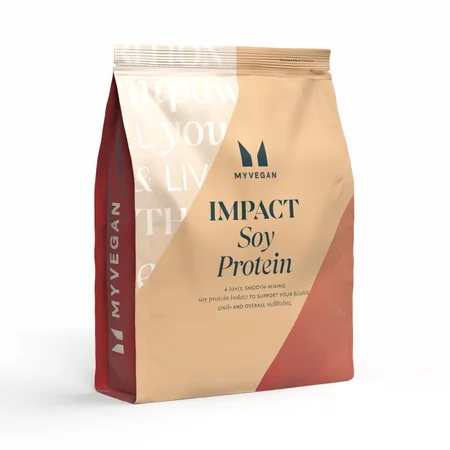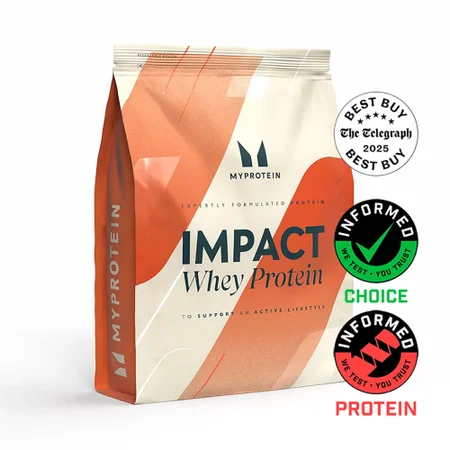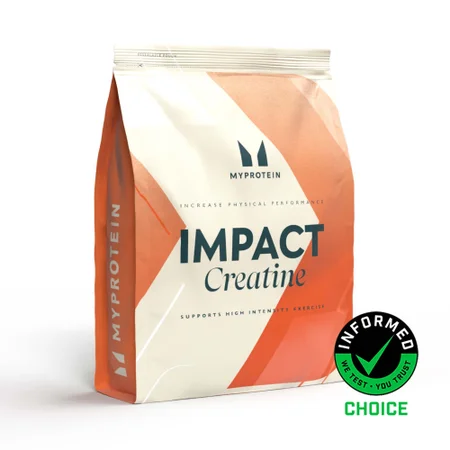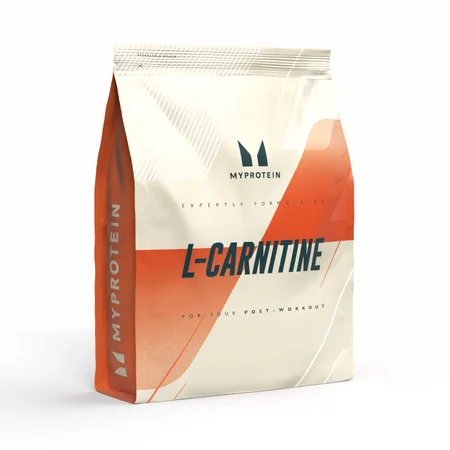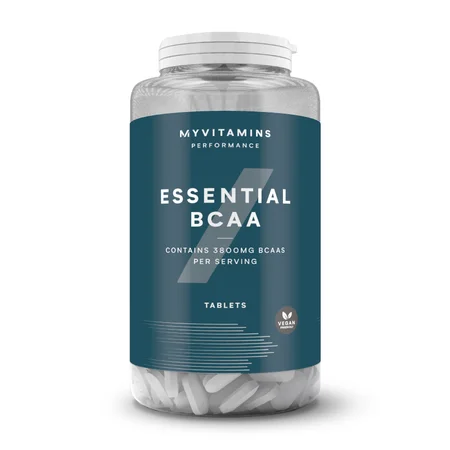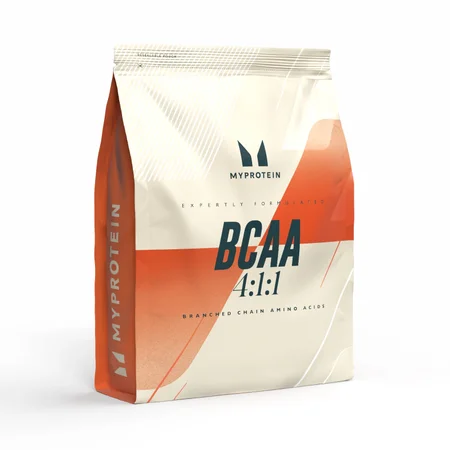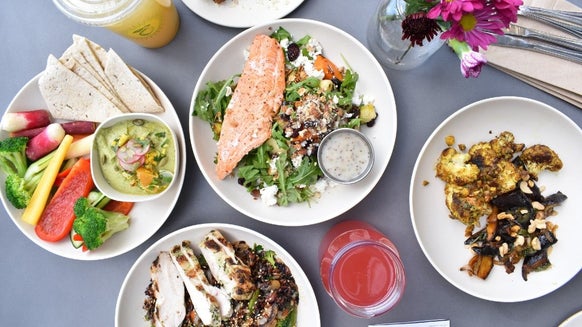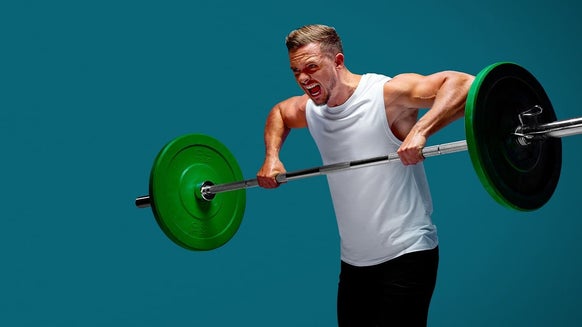
When it comes to building muscle, your gym routine is only one part of the puzzle — your diet, particularly your protein intake, is the other key factor. Your body uses protein to repair and rebuild muscle tissue after exercise, leading to growth. Getting your daily protein right is essential to see results.1
So ... how much protein do you need? This article will guide you through exactly what protein is, how it helps build muscle, and how to calculate your own personal protein needs. We’ll also cover the best food sources, supplements, and common mistakes to avoid. So, read on to learn how to make the most of your protein intake and smash your muscle-building goals.
- What is protein?
- How does protein contribute to muscle growth?
- How much protein do you need per day?
- How much protein do you need to build muscle?
- When should you eat protein to build muscle?
- High-protein foods to help you build muscle
- Supplements to build muscle
- Training to build muscle
- Common muscle-building mistakes
- FAQs
<!---->
What is protein?
Protein is one of the three macronutrients, alongside carbohydrates and fats. It's made up of amino acids, often called the "building blocks" of the body.
Protein is vital for building and repairing body tissues, including muscle. It can be found in both animal and plant sources, such as meat, eggs, dairy, beans, and peas. Additionally, protein supplements are a great option.
How does protein contribute to muscle growth?
Our bodies are constantly in a state of protein turnover, where some proteins are broken down (catabolism) and others are built up (anabolism).
When you exercise, particularly with resistance training, you create tiny tears in your muscle fibres. To repair this damage and make the muscles stronger, your body needs an adequate supply of amino acids from protein.
By consuming enough protein, you provide the building blocks your body needs to repair these microtears, leading to an increase in muscle mass over time.
How much protein do you need per day?
The daily recommended amount of protein for a healthy adult is 0.75g per kg of body weight. So if you weigh 85kg (about 13.5 st), this is around 64g of protein per day.
But if you want to gain muscle, you'll need to eat a fair bit more ...
How much protein do you need to build muscle?
General guidelines suggest you need between 1.2-2.2 grams of protein per kilogram of body weight daily to encourage muscle growth. Your specific needs can vary based on your age, sex, weight and activity level.1
How to calculate your protein requirements for muscle growth
There are a few ways to calculate your protein needs. The simplest method uses a straightforward grams-per-kilogram calculation. First, find your body weight in kilograms, then multiply it by the recommended range.
Example: A person weighing 70kg would need between 84g (70 x 1.2) and 154g (70 x 2.2) of protein per day.
For a more tailored approach, a macro calculator can provide a complete breakdown of your protein, carb, and fat needs based on your specific goals. You can also calculate your intake as a percentage of your total daily calories. A range of 10-30% of your total calories coming from protein is considered reasonable, with higher percentages being more beneficial for muscle building.
Example: On a 2,500-calorie diet, if you aim for 25% of your calories from protein, you would need 156g of protein (2500 x 0.25 = 625 calories from protein. 625 / 4 = 156g).
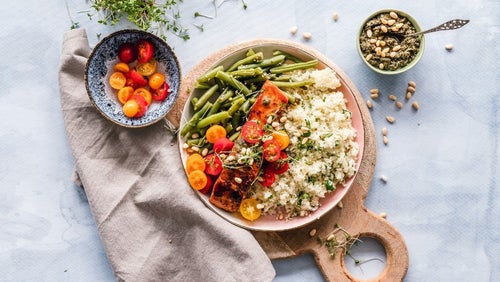
Macro Calculator | How To Calculate Your Macros For Flexible Dieting & IIFYM
Use our calculator to work out your macros....
Which factors could affect your calculations?
Certain factors can influence your protein requirements. Men typically have more lean mass than women, which often means they require more protein. However, individual needs always depend on body composition.
Your needs can also be higher if you’re pregnant, breastfeeding, or recovering from an injury. While protein is important for weight loss to preserve muscle, you might need to adjust your total calorie intake to create a deficit. Staying within the recommended protein range helps preserve your hard-earned muscle mass during a calorie-restricted diet.

Calorie Deficit Explained: Simple Steps to Sustainable Weight Loss
The science of weight loss explained in simple terms....
When should you eat protein to build muscle?
For muscle growth, it’s best to spread your protein intake throughout the day. Your body is in a constant state of muscle protein synthesis, and providing regular doses of protein, roughly every 3-4 hours, helps maintain this anabolic state.
The old belief that you have a two-hour ‘anabolic window’ after a workout is now considered a myth. While a post-workout shake is convenient, it's your total daily protein intake that truly matters for muscle growth.
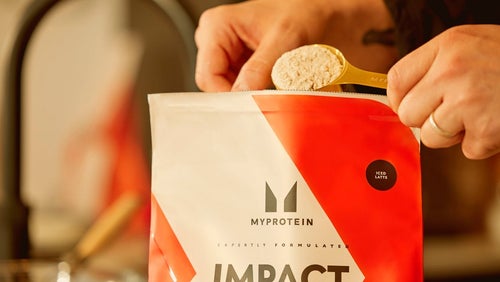
Whey Protein Timing: When Is the Best Time to Take Protein?
We reckon any time is a good time, but here's what the experts say....
High-protein foods to help you build muscle
High-protein food sources
A balanced diet with varied protein sources is key to getting all the essential amino acids. Here are some excellent high-protein foods to include in your diet:2
Meat: Chicken breast, turkey, lean beef, and pork chops are rich in protein. Fish: Salmon, tuna, mackerel, and sardines are not only high in protein but also contain healthy fats. Dairy: Greek yogurt, cottage cheese, and skimmed milk are versatile and protein-packed. Eggs: A complete protein source, whole eggs are an easy and effective option. Legumes and Plant-Based: Tofu, lentils, chickpeas, and edamame are great for plant-based diets. Nuts and Seeds: Almonds, peanuts, and chia seeds can boost your protein intake in snacks or meals.

Why Carbs Aren't The Enemy | Different Types of Carbohydrates & Benefits
It's time to make friends with carbs......
Supplements for muscle-building
Whey Protein
Whey protein is a high-quality protein source that is digested quickly, making it a convenient way to boost your daily intake. It’s particularly rich in essential amino acids, which are crucial for muscle protein synthesis.
Our
If you're following a plant-based diet, Soy Isolate is a great alternative.
Casein Protein
Casein protein is digested much more slowly than whey. This slow-release property makes it an excellent choice before bed, as it can help reduce muscle protein breakdown overnight.
Creatine
Creatine supplementation increases your body’s stores of creatine phosphate, which is a key fuel source for high-intensity exercise like weightlifting. By having fully saturated creatine stores, you can perform more reps and sets, leading to better long-term muscle gains.
Amino acids
The amino acid leucine is especially important for muscle building, as it acts as a signal to kick-start muscle protein synthesis. Choosing protein sources, or supplements, that are high in leucine can help maximise your muscle-building potential.3
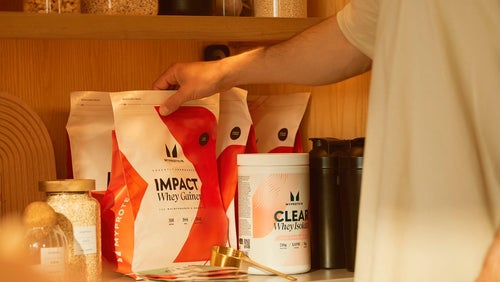
The 8 Best Supplements For Muscle Gain
Is growing muscle on your agenda? Then you've probably considered supplements – ...
Training for muscle-building
Exercise selection
For muscle growth, a combination of multi-joint (compound) and single-joint (isolation) exercises is best. Compound exercises like squats and bench press work multiple muscles at once, while isolation exercises allow you to focus on specific muscles.
Get your rep ranges right
To build muscle, you need to lift with enough intensity. The most effective rep range for muscle growth is typically between 6-12 reps per set, using a weight that makes the final reps challenging to complete.
Train with enough volume
Training volume refers to the total number of sets and reps you perform. Evidence shows that higher training volume is better for building muscle. Aim for a sufficient number of sets for each muscle group per week to stimulate growth.
Progression
To keep building muscle, you must progressively increase your training volume over time. This can mean lifting heavier weights, doing more reps, or adding more sets. Progressive overload is a fundamental principle of muscle growth, but remember to increase gradually to avoid injury.
Common muscle building mistakes
1. You’re not eating enough
Building muscle requires a calorie surplus. If you are not eating enough calories, your body won't have the energy it needs to build new muscle tissue. The optimal daily calorie surplus for muscle gain is typically between 250-450 kcal.
2. You’re not getting the amount of protein you need
Protein is the building block of muscle, and not consuming enough can hinder your progress. If you're not in a calorie deficit, the optimal protein intake for muscle gain is around 1.6g/kg/d. Eating too much protein can also be a mistake, as it can make it harder to get enough carbohydrates and fats to meet your total calorie needs.
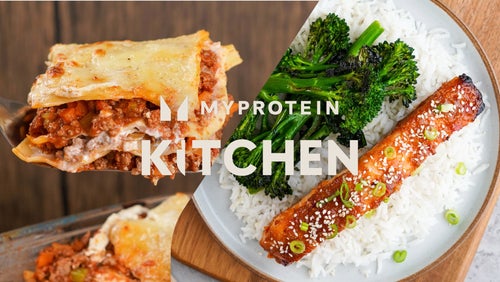
57 Meal Prep Recipes For Muscle Building & Fat Loss
Your next favourite prep is in here......
3. You are not eating protein regularly enough
Spreading your protein intake throughout the day is crucial. When you go for long periods without protein, your body's muscle protein breakdown can exceed synthesis. Aim for protein every 3-4 hours to maintain a continuous anabolic state and support muscle growth.
4. You’re not eating enough carbs
Carbohydrates are the main fuel source for high-intensity resistance training. Without enough carbs, your performance in the gym can suffer, making it difficult to complete the sets and reps needed for muscle growth. Post-workout carbs also help replenish your glycogen stores, aiding in recovery.
5. You’re not giving it enough time
Building muscle is a slow process that requires patience and consistency. The rate of muscle gain varies, but a realistic goal is around 0.5-1kg of muscle per month. Stay focused on your training and nutrition plan, and you will see results over time.
6. You’re not sticking to a plan
Consistency is key. A well-designed, progressive resistance training program and a supportive nutrition plan are essential. Sticking to a plan ensures you are consistently applying the principles of progressive overload, which is vital for long-term muscle gain.
Protein for muscle growth — FAQs
Do men need more protein than women?
Generally, males have more muscle mass than females and therefore require more protein for maintenance and growth. However, individual protein needs are based on factors like weight, muscle mass, and activity level. A very active female could require more protein than a less active male.

Protein Intake for Women | How Much Should You be Getting per Day?
And which protein sources are best?...
Will protein make me gain weight?
Consuming too many calories from any source, including protein, can lead to weight gain. However, if your goal is to build muscle, an increase in scale weight is expected, as muscle tissue is denser than fat. Muscle tissue also holds water, which can contribute to weight gain.
What is the best protein to build muscle?
The best proteins for muscle growth are ‘complete’ proteins, which contain all nine essential amino acids. Varying your protein sources ensures you get a wide range of amino acids. Research shows that protein sources high in the amino acid leucine, such as dairy foods, are particularly effective for increasing muscle growth.3
What is the best vegan protein for muscle growth?
Plant-based protein supplements like soy, rice, and pea protein are great options. A blend of these can be particularly effective to ensure you get a full spectrum of amino acids. Look for products with higher levels of protein per serving.
Is it possible to consume too much protein?
It’s possible to consume too much of any nutrient. Your body will store excess protein as fat if it doesn’t need it for energy. While extremely high levels can be harmful over time, studies suggest that daily intakes up to 3.5g/kg of body weight are generally not harmful for healthy individuals. If you have a pre-existing kidney condition, it’s best to consult with a medical professional.4
Take home message
Protein is a key nutrient for muscle growth. When combined with challenging resistance exercise, it provides the essential building blocks your body needs to repair and build muscle tissue. By understanding your daily protein needs, choosing the right food sources, and using supplements when necessary, you can effectively fuel your body to achieve your strength and muscle-building goals.
FIND MORE HERE:
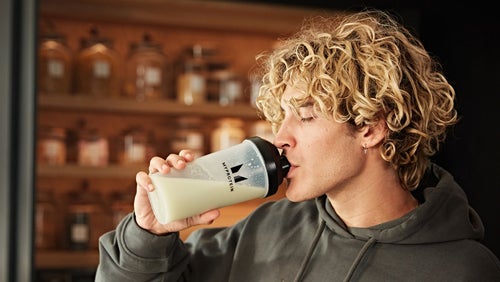
What Are BCAAs & Their Benefits?
How could BCAAs help you reach your goals?...

- Table, M. (2005). Dietary reference intakes for energy, carbohydrate, fiber, fat, fatty acids, cholesterol, protein, and amino acids (Vol. 5, pp. 589-768). National Academy Press: Washington, DC, USA.
- Nutritiondata.self.com. 2020.SELF Nutrition Data | Food Facts, Information & Calorie Calculator. [online] Available at: <https://nutritiondata.self.com/> [Accessed 19 August 2020].
- Rieu, I.,Balage, M.,Sornet, C., Giraudet, C., Pujos, E., Grizard, J., … & Dardevet, D. (2006). Leucine supplementation improves muscle protein synthesis in elderly men independently of hyperaminoacidaemia. The Journal of physiology, 575(1), 305-315.
- Astrup, A. (2005). The satiating power of protein—a key to obesity prevention?
